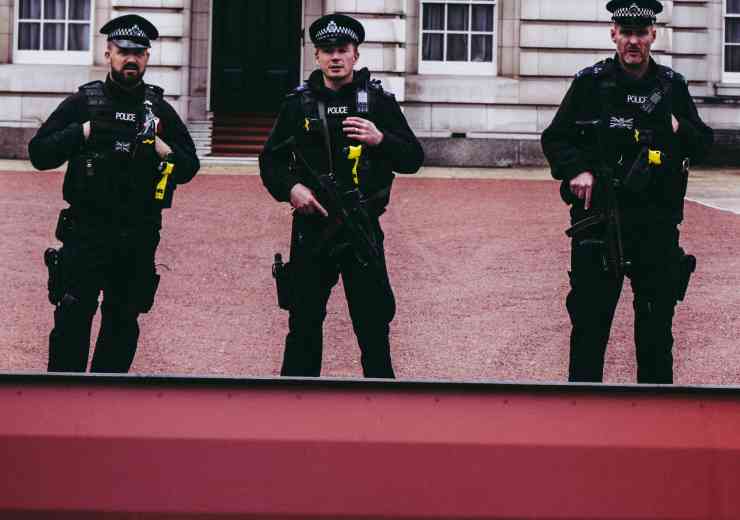Pursue, protect, prepare, prevent
This year saw the fifth anniversary of the 7/7 London bombings. The fact that we have not suffered a similar scale attack in the UK since the horrific events of July 2005 is testament to the hard work and dedication of the police and the security and intelligence agencies. The threat posed to the UK by international terrorism nevertheless remains. The Joint Terrorist Analysis Centre (JTAC), which operates independently of Ministers and the Home Office, currently judges the UK threat level to be ‘severe’, meaning a terrorist attack is highly likely. My job as Security Minister is to do my best to ensure a safe, secure and free country. While it is near impossible to eliminate the threat from terrorism completely, we can – and we must – take steps to reduce our vulnerability to it. We will cooperate with our international partners, working with them to increase our and their capacity to combat terrorism.
Protecting the British way of life
Protecting the public and safeguarding our liberties are not mutually exclusive aims. More security should not mean less freedom; we are after all protecting the way of life of the British people and not just our physical assets. We need to act against those who threaten our safety and security in ways which also safeguard the traditional liberties of the law abiding majority. The coalition will continue to work within the broad framework of the existing counter-terrorism strategy (CONTEST: Pursue, Protect, Prepare and Prevent), but we are reviewing certain aspects of implementation.
Our counter-terrorism regime must be proportionate, focused and transparent. That is why we are currently undertaking an urgent review of counter-terrorism powers and the legislative framework within which they operate. Among other aspects the review includes control orders, pre-charge detention, the operation of stop-and-search powers (Section 44), proscription and the use of powers by local authorities under the Regulation of Investigatory Powers Act (RIPA). We also need to make progress in the UK’s ability to deport foreign nationals who pose a threat to our national security. Fundamentally, we must ensure that in protecting public security, the powers used to deal with terrorism are consistent with the rule of law and are administered in ways which command confidence in all communities in the country.
The review detailed above largely concerns measures in the Pursue sphere. In relation to Prepare, which aims to prepare for, and mitigate the consequences of, a terrorist attack, there will not only be a continuing focus on prompt, efficient consequence management of threats and hazards to such things as the country’s critical national infrastructure but also an increasing emphasis on building in long term resilience to reduce vulnerability.
Cyber Security
An area where the UK, in common with other advanced societies, needs to increase its resilience is in the cyber domain. This is not just a matter of government communications and our military capabilities, essential as these are. High levels of cyber security are literally vital to the nation’s economic future – our ability to protect valuable intellectual property and defend the millions of electronic transactions conducted on a daily basis against theft and misappropriation. Across government we will work to help create, in close cooperation with the private sector, conditions in which the UK is seen as an attractive place for domestic and foreign investors to place high value assets.
Protect remains a key element: the safety and policing of our crowded places and our sensitive installations as well as the development of first-class border security. We need to be able to intercept anything hostile or criminal approaching our shores, whether goods or people, for which the ability to acquire reliable intelligence and use it in a timely way is essential. Layered security at our airports and end to end security on the journey is another significant component of policy which cannot be obtained without international cooperation. Many parts of this agenda are central to a safe and secure Olympic Games, now only two years away.
Preventing Terrorism
Last but not least, we are looking hard at the Prevent programme – how to dissuade individuals from listening to the siren call of radicalisation – to ensure it is effective and properly focused. The Prevent review is separate from the counter-terrorism powers review and will report back in early 2011. We have already said that we will deconflict those parts of the strategy that are about frontline intervention against radicalisation, led by the Home Office, and those which foster the integration of communities led by the Department of Communities and Local Government.
In looking at all of these areas, I am confident that by early next year, the government’s strategy for countering terrorism will have been refreshed and strengthened. I am also keen that we take the opportunity to spread UK security expertise more globally and want to engage actively with industry in achieving this. A recent visit to the Farnborough Airshow gave me the opportunity to see first hand some of the impressive work UK based security companies are doing to bring innovative technology solutions to market. This said, it is sad to report that whereas the UK defence industry captures 18 per cent of the worldwide market, the comparable figure for security is only four per cent. Together government and industry can do much better than this and I look forward to working closely with industry through UKTI to achieve major increases in performance. I am glad to say that this month I signed a Memorandum of Understanding with the government of Kuwait on security issues which should provide the UK based security industry with significant opportunities.
Clearly, security and defence are not mutually exclusive, which is why the Strategic and Defence and Security Review will be one of the vehicles for ensuring a balanced allocation of resources for our defence and security at a time when spending is under closer scrutiny than ever. The Home Office is a full player in this review which, together with the concurrent National Security Strategy Review, will lay down our priorities for this Parliament and beyond.
digital issue




















